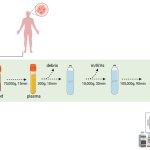
News • Glioblastoma
Blood test for brain tumors possible
Researchers at the University of Sussex are one step further to developing a blood test capable of diagnosing the most aggressive form of brain tumour.

Researchers at the University of Sussex are one step further to developing a blood test capable of diagnosing the most aggressive form of brain tumour.
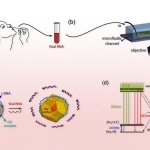
Scientists at have designed a quantum sensor to detect SARS-CoV-2 faster, cheaper, and more accurate than the current gold-standard technique, PCR.
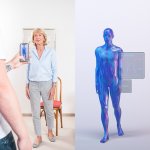
Every day, elderly people fall – be it at home or in care facilities. Med-tech start-up Lindera developed an app that allows motion analysis via a smartphone camera to minimize the risk of falling.
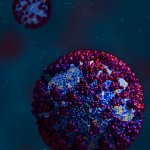
Researchers in the UK and China have developed an AI model that can diagnose Covid-19 as well as a panel of professional radiologists, while preserving the privacy of patient data.
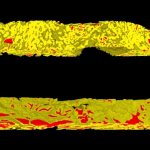
A team led by the University of Washington has developed a new, non-destructive method that images entire 3D biopsies instead of a slice. The 3D images provided more information than a 2D image — specifically, details about the tree-like structure of the glands throughout the tissue.
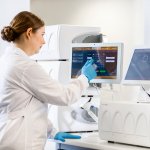
One size does not fit all when it comes to diagnostics. Different diagnostic locations need solutions that meet their needs, whether for on-demand testing in a healthcare setting or a laboratory managing population screening. Finding the right solution can be a challenge especially when the future may change what a laboratory needs, Hologic Inc. reports.
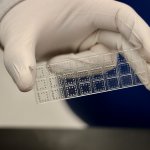
Test could measure patient immunity against multiple COVID-19 variants such as Omicron and Delta at once and inform which synthetic monoclonal antibody to use for treatments.
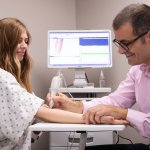
Mammograms are a safe, effective way to detect the presence of breast cancer in women. But doctors recommend most females should start getting mammograms after the age of 40 in part because the procedure involves small doses of ionizing radiation. While the risk of getting breast cancer is higher for older people, it can strike at any age. Studies show that 5% to 7% of females with breast cancer…
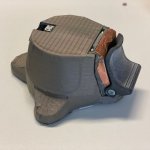
A stethoscope is one of a doctor's most important instruments, but there haven't been any fundamental improvements in the device itself since the 1960s. Now, researchers at Aalto University have developed a device that analyses a broad range of bodily functions and offers the doctor a probable diagnosis, as well as suggestions for appropriate further examinations. The researchers believe that the…

Smartphone pictures of post-surgical wounds taken by patients and then assessed by clinicians can help with the early identification of infections, a study has found.

In May 2022 a shortage of several lab tests may come as many manufacturers struggle to comply with EU regulation requirements covering in vitro diagnostic medical devices (IVDR, Regulation (EU) 2017/746). Even modified tests and laboratory-developed tests will present a problem for hospitals and labs as explained by Dr Thomas Streichert.

Whole genome sequencing (WGS) from a single blood test picks up 31% more cases of rare genetic disorders than standard tests, shortening the ‘diagnostic odyssey’ that affected families experience, and providing huge opportunities for future research.
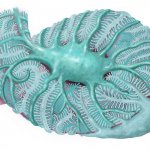
Researchers have leveraged the power of digital pathology and computational modeling to detect and quantify podocytes, a specialized type of cell in the kidney that undergoes damaging changes during early-stage kidney disease.

Researchers at the Catharina Heart and Vascular Center, together with Eindhoven University of Technology, have developed a new measurement method to analyze the smallest capillaries of the heart by measuring blood flow and resistance. The new method to assess coronary microcirculation allows cardiologists to make a clearer diagnosis. Until recently, the tests used for this purpose were not…

A new rapid molecular diagnostic test from Cepheid has received the CE mark for distribution in the European market. The test, called Xpert Xpress CoV-2/Flu/RSV plus, is designed for qualitative detection of the viruses causing Covid-19, Flu A, Flu B, and respiratory syncytial virus (RSV) infections from a single patient sample. The new plus version of the test provides a third gene target for…

Researchers at Karolinska Institutet have developed an AI-based tool that improves the diagnosis of breast cancer tumours and the ability to predict the risk of recurrence. The greater diagnostic precision can lead to more personalised treatment for the large group of breast cancer patients with intermediate risk tumours. The results are published in the scientific journal Annals of Oncology.
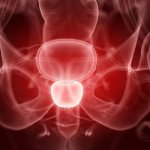
The FDA authorized marketing of software to assist medical professionals who examine body tissues in the detection of areas that are suspicious for cancer as an adjunct to the review of digitally-scanned slide images from prostate biopsies.
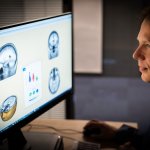
A two-minute passive-test that measures people’s brain waves in response to a series of images, 'Fastball EEG', could help expand early dementia diagnosis.

The role of Artificial Intelligence (AI) is one of the most divisive issues in cardiology. Two leading experts argue the pros and cons of its use, exploring its benefits and advantages to cardiac care, as well as highlighting the pitfalls and shortcomings of AI, while underlining the need for clear guidelines and regulations for its use going forward.

MedTech Europe, the European trade association for the medical technology industry including diagnostics, medical devices and digital health, ran an industry survey, which shows an urgent, high risk to the availability of IVD medical tests once the new IVD Regulation fully applies.

Markers in our blood – ‘fingerprints’ of infection – could help identify individuals who have been infected by SARS-CoV-2, the coronavirus that causes Covid-19, several months after infection even if the individual had only mild symptoms or showed no symptoms at all, say Cambridge researchers. The team has received funding from the National Institute for Health Research to develop a test…

Pancreatic cancer is one of the deadliest cancers in the world, and one of the most difficult to treat. In 2020, an estimated 495,000 individuals worldwide were diagnosed with pancreatic cancer and an estimated 466,000 died, according to statistics from the World Health Organization’s International Agency for Research on Cancer. Most patients with advanced disease die within a year of…

University of Washington researchers have discovered that AI models—like humans—have a tendency to look for shortcuts. In the case of AI-assisted disease detection, these shortcuts could lead to diagnostic errors if deployed in clinical settings.
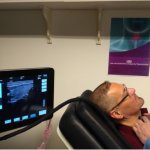
The EU-funded consortium Laser and Ultrasound Co-analyzer for Thyroid Nodules (LUCA) has developed a non-invasive, low-cost device that brings a new solution for thyroid cancer screening.
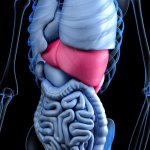
Handheld laser devices that help surgeons quickly spot liver damage could transform transplant procedures, research suggests. The non-invasive technique could provide medical staff with instant data on the health of donor livers and help them to identify which organs are suitable for transplant. If widely adopted, the light-based tool could allow more livers to be transplanted safely and…